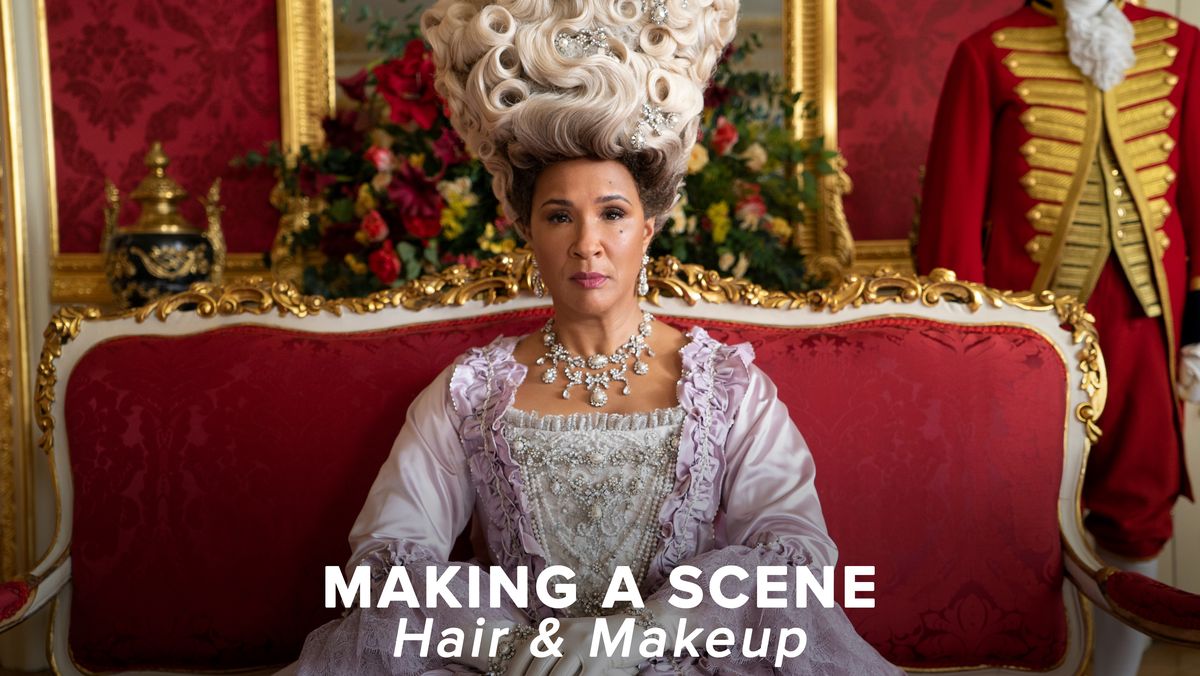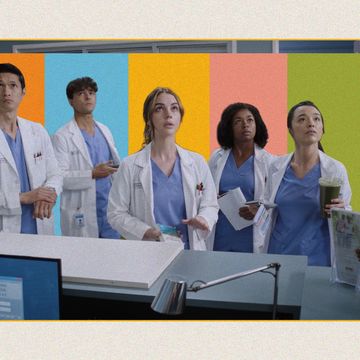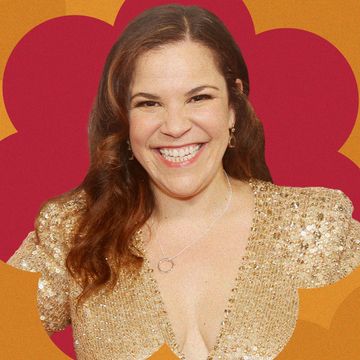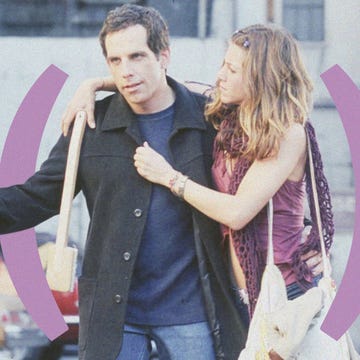I don’t know about you, but like many others, I stayed inside and ate chocolates through much of 2020, waiting out the pandemic.
Then there is Jenny Lumet, the 54-year-old granddaughter of Lena Horne and daughter of director Sidney Lumet. A groundbreaking producer and writer — Lumet was the first woman of color to receive New York Film Critics Circle, Toronto Film Critics Association and Washington D.C. Film Critics Association awards for her film Rachel Getting Married — she has always been productive. But Lumet outdid herself in 2020, co-creating three shows with her writing partner, Alex Kurtzman, that were all greenlit.
The shows include Star Trek: Strange New Worlds, The Man Who Fell To Earth (based on a sci-fi novel by Walter Tevis, who also wrote a little book called The Queen's Gambit), and Clarice. The first two shows have no set premiere dates, but Clarice debuted on CBS last week. The psychological thriller follows FBI agent Clarice Starling one year after the events of Thomas Harris’ Silence of the Lambs. (A certain feaster on human flesh is not mentioned by name, by the way) Lumet’s thinking behind this show was, “Why is everybody else getting to talk, and not the woman who saved everybody?”
Like her TV creation, Lumet, who’s also a mom of two children — 25-year-old Jake and 12-year-old Sasha — has demonstrated bravery. At the dawn of the #MeToo movement, and after much soul-searching, Lumet came forward to detail her own experience in an article for The Hollywood Reporter, which alleged she was violated by Russell Simmons.
On the eve of Clarice’s debut, Shondaland spoke with Lumet about creating shows during the pandemic, depicting powerful female characters, and why she decided to write about her experience with Simmons.
SHERRY AMATENSTEIN: I’m wondering what you think of my hypothesis that working ‘til you dropped was partly a coping mechanism to deal with the pandemic?
JENNY LUMET: I think you’re absolutely freaking right. The insane busyness probably kept the depression at bay. For me, depression is insidious — you find yourself in the middle of the ocean without knowing how you got in the f—king boat! I’m pretty sure everybody on both sides of the family had depression. Nobody really discussed it. But I think my father and grandma both started working when they were kids.
The relentless schedule was an adrenalizer that pushed me through. I couldn’t tell you if I would need a repeat of this very particular set of circumstances — single mom, kid, pandemic, craziness in the White House — to repeat my productiveness.
My daughter and I moved from New York to Los Angeles eight months before everything went into lockdown. (My son was already out of the house.) All of a sudden I was not with my friends, not with my family… I could either sink or swim. So the thing to do was swim like a motherf—ker.
SA: I binge-watched my screeners of the first three episodes of Clarice. She’s obviously haunted by the trauma she’s faced, yet won’t let that stop her from facing down whatever monsters lie in wait. What was your thinking behind the creation of this character?
JL: The idea of the brilliant outsider cop is always given to men. They’re like, “I’m a guy and I’m going rogue.” Women don’t have that leeway. We have to play by the rules, and the rules are invented by men. Also, the show is set in 1993 when the FBI was 90 percent male. Clarice faces that infuriating double standard of “follow the rules, young lady, though they don’t apply to us. And if you mess with the rules, we can be punitive.”
The show has a timely element. Our country, on every side of the aisle, has gone through four years of getting our butts kicked in one way or the other. Like Clarice, we’re all looking at ourselves anew and asking, “Who am I now?”
SA: How would you describe Clarice?
JL: She’s a flawed Persephone who would go down into Hades. Persephone, the queen of the underworld, didn’t have much say in her life. Clarice is the Persephone who volunteers. And what does it cost her emotionally to look all that stuff in the face? You have to be someone who is hard to kill.
SA: What attracts you to people who are hard to kill?
JL: They have the best senses of humor – that’s why they’re hard to kill.
SA: Didn’t you sneak co-creating a fourth show last year into your “lazy bones” schedule?
JL: Yes, a limited series for Showtime: Blackbird: Lena Horne and America, but I haven’t started writing it yet. Ya, grandma!
SA: What led to your decision to write about Russell Simmons’ attack on you, and what kind of reaction did you receive?
JL: I wrote that I couldn’t leave those other women coming forward twisting in the wind. I thought if it was a friend of mine or my child, and someone had information that pertained, I would want them to say something.
You can’t control what other people think or say. I had death threats; raging bullshit, like I’m in it for the money or want to bring a Black man down.
I was disappointed in the response from Black men. I wished a greater number who had public platforms had been supportive. Yet, that was 2017 and here I am in 2020 with three television shows. So what does that say about using your voice? I’m lucky I’m a writer and happy and proud I was able to release something I was carrying.
SA: Your mother was Black and your father white. What was your reaction to the George Floyd murder?
JL: It felt traumatic. It was very hard to be around white people, even though half of my family are white people. It was a very tricky negotiation. Most people have come away with some kind of knowledge or understanding they might not have had from witnessing this particularly murderous episode, although there have been nothing but murderous episodes since 1619. Would we trade any of the insights gleaned from all these murders to have these people back – George Floyd, Breonna Taylor, Ahmaud Arbery, Eric Garner? I want everybody back.
Part of my impetus is that I’m 54, Black, and I’m not supposed to be creating shows for networks. I’m going to keep doing it because there are voices that are too quickly silenced. I was attracted to Clarice because she had been silent since Silence of the Lambs. I was drawn to a woman finally speaking.
SA: In the first three episodes, Clarice understandably had a lot of sadness. I wanted to reach through the screen and hug her. Will she find some joy? Will those who have suffered find their joy?
JL: Yes! You can emerge from trauma and your whole life is not gloom and doom. Let’s get all of us back to our joy!
Sherry Amatenstein is a NYC-based psychotherapist, author of three books including The Complete Marriage Counselor and editor of the anthology How Does That Make You Feel?. She has written for many publications including Vox, Washington Post, The Week, Observer and Dame Magazine. Follow her on twitter at @SherapyNYC.
Get Shondaland directly in your inbox: SUBSCRIBE TODAY














